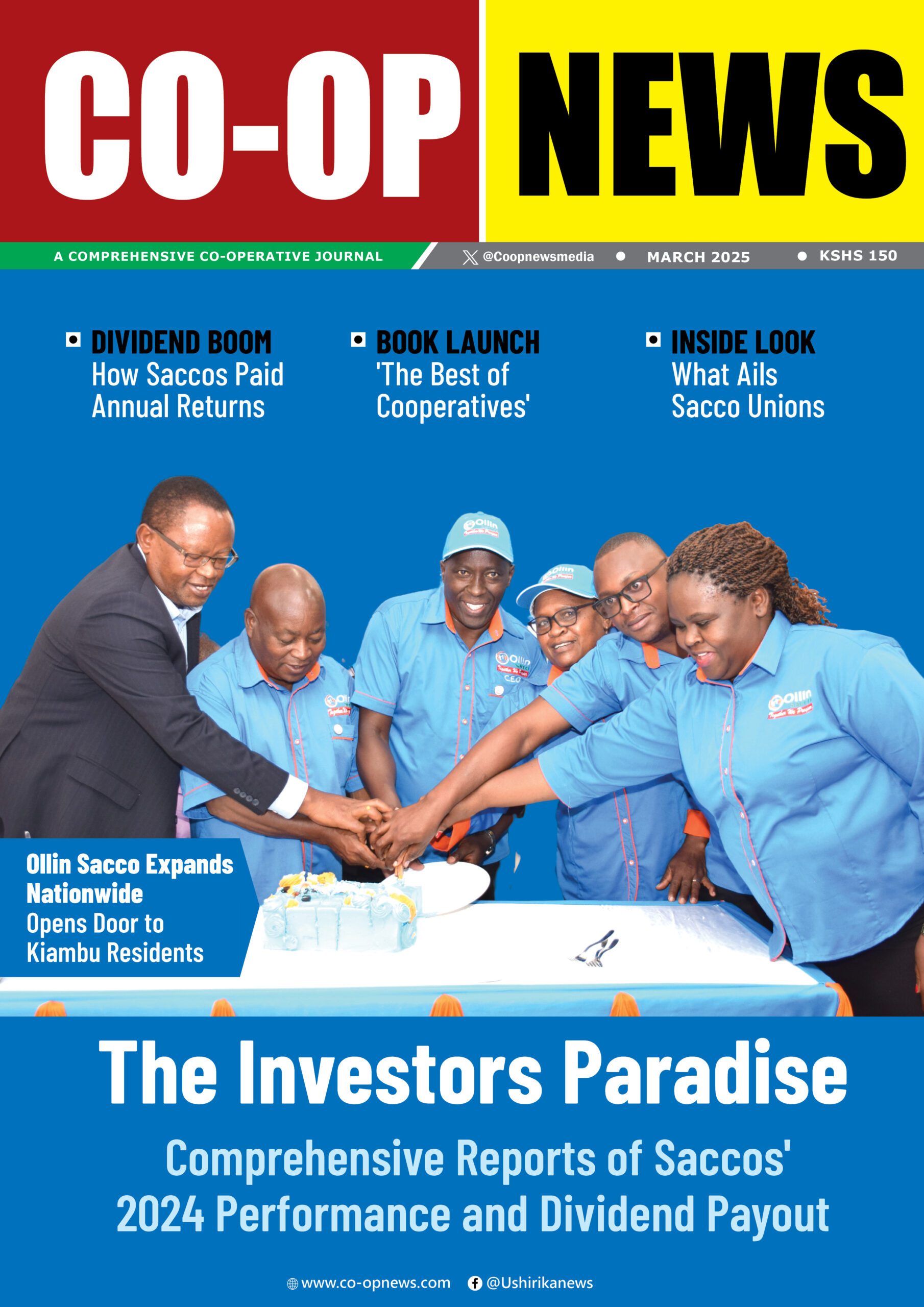EMPOWERING RURAL WOMEN
Access to formal financial services has been a challenge for many women due to limited control over financial resources and cultural perceptions of their roles.
In response to this, Savings and Credit Co-operative Societies (Saccos) have emerged as community-based financial institutions aimed at promoting economic interests and providing a safe and convenient place for women to save money and access credit.
Women often lack access to formal financial services due to limited access to and control over financial resources, especially land. Cultural perceptions of women’s roles in terms of division of labour in the household also hinder their access to income.
Saccos, community membership-based financial institutions that are formed and owned by their members to promote their economic interests, have come in to help bridge the gap. They have been able to provide a safe and convenient place for women to save their money and access credit when they need it.
The Kenya Women Rural Network has registered five women-led co-operatives in Kajiado County aimed at championing enterprise diversification and providing women with alternative sources of income.
Historically reliant on livestock as its primary economic driver in its predominantly arid environment, the county is now experiencing a notable transformation with the emergence of multi-purpose co-operative societies. These efforts have signalled a shift towards exploring alternative revenue streams.
Recognizing the crucial role of women in value chains, Pauline Kariuki from the Kenya Women Rural Network described efforts to empower them through multi-purpose co-operatives, with the aim of reducing reliance on livestock-dominated economies.
“By enabling women to lead and market products such as beadwork and African leafy vegetables, these co-operatives seek to enhance their economic agency and grassroots engagement,” said Kariuki.
Initially focusing on the beadwork value chain, these co-operatives have developed into a multi-purpose co-operative model, encompassing sectors such as fish, vegetables, and energy artisans.
This inclusive approach ensures unity and maximizes the collective bargaining power of co-operatives.
Highlighting the benefits of co-operatives, Kariuki emphasized their collective bargaining power to increase market access and adaptability to changing market and weather patterns, mitigating the impact of factors like climate change.
Saccos, community membership-based financial institutions that are formed and owned by their members to promote their economic interests, have come in to help bridge the gap. They have been able to provide a safe and convenient place for women to save their money and access credit when they need it.
James Ngoke, County Director of Co-operative in Kajiado County, emphasized the importance of service provision in their department’s activities. He said they prioritize promoting and training individuals on the significance of joining co-operatives, followed by comprehensive management training.
He stressed the importance of understanding co-operatives as business entities, emphasizing the need for financial literacy and adherence to bylaws.
In addressing environmental challenges like climate change, Agneta Saruni, a co-operative officer in Kajiado, emphasized the need to diversify economic activities.
Co-operatives are aiming to enhance resilience in local communities by promoting ventures into poultry farming, beekeeping, and other alternative sectors.
Saruni, reflecting on past hardships, expressed pride in witnessing the transformation of community livelihoods. Despite initial scepticism, she said communities have embraced diversification, leading to tangible improvements in their economic well-being.
The beadwork industry in Kenya has become a significant source of revenue for many women, especially in pastoral counties, who not only sell their beads locally but internationally as well. African leafy vegetables have become an integral part of Kenyan cuisine and culture and have the potential to economically empower local communities, particularly women.
Co-operatives are also working to improve collective bargaining power, increase market access, and adapt to changing market conditions.
Experts note that in communities where women’s participation in the public sphere is limited, joining a co-operative provides a means for women to have a voice and access leadership roles that would otherwise not be available to them.
In Nyanza, Maendeleo ya Wanawake Organisation Chairperson Rahab Muiu is encouraging women in the region to consider joining Saccos to gain access to essential funds for economic empowerment.
Muiu noted that Saccos not only provide opportunities for savings, loans, and dividends but also plays a critical role in driving development. Speaking at the Annual General Meeting of Rachuonyo East Entrepreneurs Sacco in Kabondo Kasipul Constituency, Muiu noted that many women struggle to access capital despite having valuable business ideas. She highlighted that Saccos can address this challenge by offering their members loans and dividends, empowering them to pursue their entrepreneurial aspirations.
Muiu further emphasized the positive impact Saccos have had on people’s lives across the country through the financial services they provide, and urged women in the Nyanza region to consider joining Saccos for their own empowerment.
“Saccos have significantly enhanced the quality of life for many individuals in our country by providing essential financial services. I encourage the women of the Nyanza region to consider joining Saccos,” Muiu said.





